Third Leg of Food Safety and Proper Food Handling Training in Cebu City
June 2018
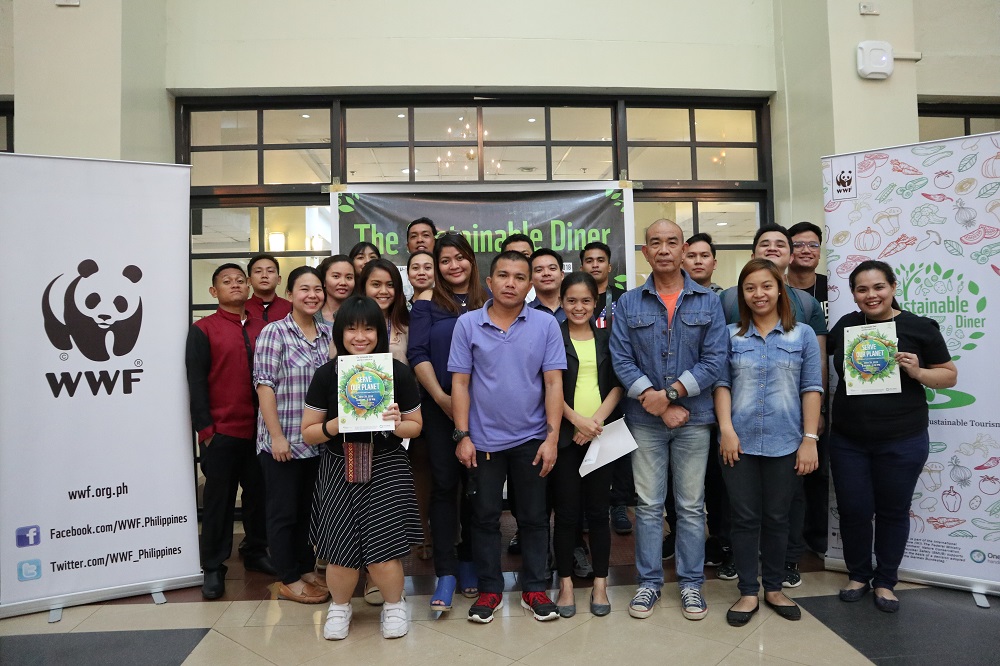
The participants of the Serve Our Planet: Ensuring Safe Food and Proper Food Handling training are representatives of restaurants and other food service establishments, as well as government employees from one of The Sustainable Diner’s partner cities, Cebu City. © Gabriel Villalon / WWF-Philippines
Last June 29, 2018, World Wide Fund for Nature (WWF) Philippines’ The Sustainable Diner: A Key Ingredient for Sustainable Tourism project conducted the third leg of their Serve Our Planet: Ensuring Safe Food and Proper Food Handling training at the Social Hall of the Cebu City Hall. In partnership with the Cebu City Tourism Office, the Cebu City Health Department, and the Cebu City Environment & Natural Resources Office, the objective of the training is to equip the city’s food service establishment representatives with the skills and knowledge needed in order for them to incorporate sustainability practices in their day-to-day operations. As food service industry practitioners, this training served as an eye opener to alleviate the food waste issue through proper knowledge and understanding of food safety and handling principles.
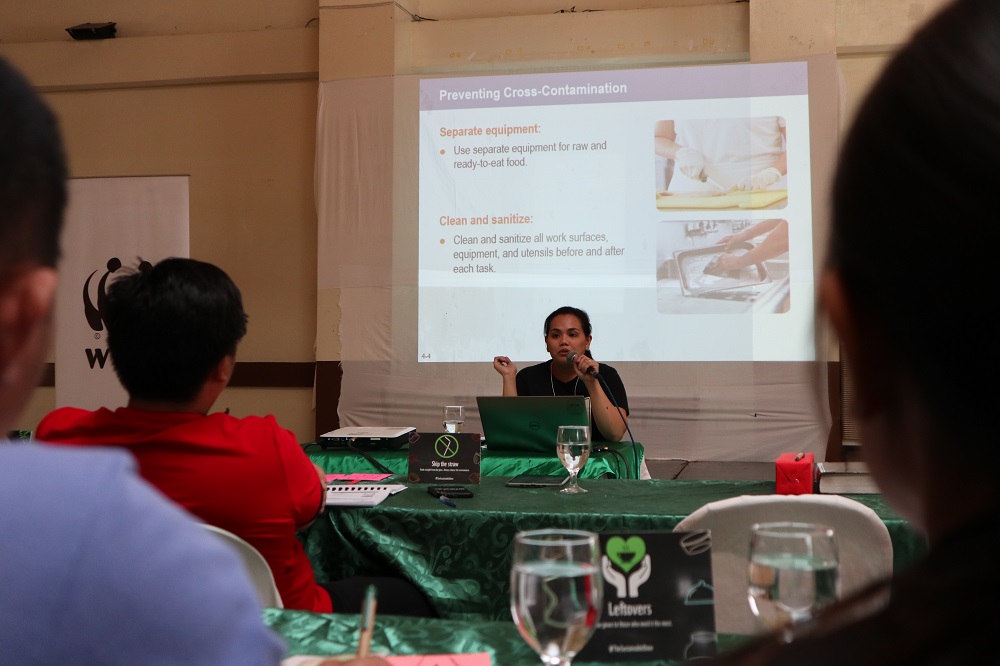
WWF Project Manager for Sustainable Consumption and Production in the Philippines, Melody Melo-Rijk, performing her role as the trainer for the day, talking about ways to avoid cross-contamination in restaurant operations. © Gabriel Villalon / WWF-Philippines
The training was based on ServSafe, a food and beverage safety training and certification program. ServSafe has integrated the latest FDA Code and extensive food sanitation training research and experience into its manual to provide participants comprehensive training guidelines.
Melody Melo-Rijk, WWF’s Project Manager for Sustainable Consumption and Production in the Philippines, opened the training by welcoming the participants through a short introduction on The Sustainable Diner project, as well as the Serve Our Planet training series and its objectives. Coming from the previous training legs conducted in Quezon City and Tagaytay City, plenty of stories and experiences were shared with the Cebuano participants, who also shared their own inputs throughout the training. Melo-Rijk’s talk was followed by a discussion on food service-related sanitation by Dr. Alma Corpin of the Cebu City Health Department, an in-depth conversation on sustainable tourism and Cebu City’s efforts in promoting sustainable practices with Hearty Marie Rizarri of the Cebu City Tourism Office, and an overview on the responsibilities and initiatives of the Cebu City Environment & Natural Resources Office with Leo Kiamco who attended on behalf of Ms. Nida Cabrera.
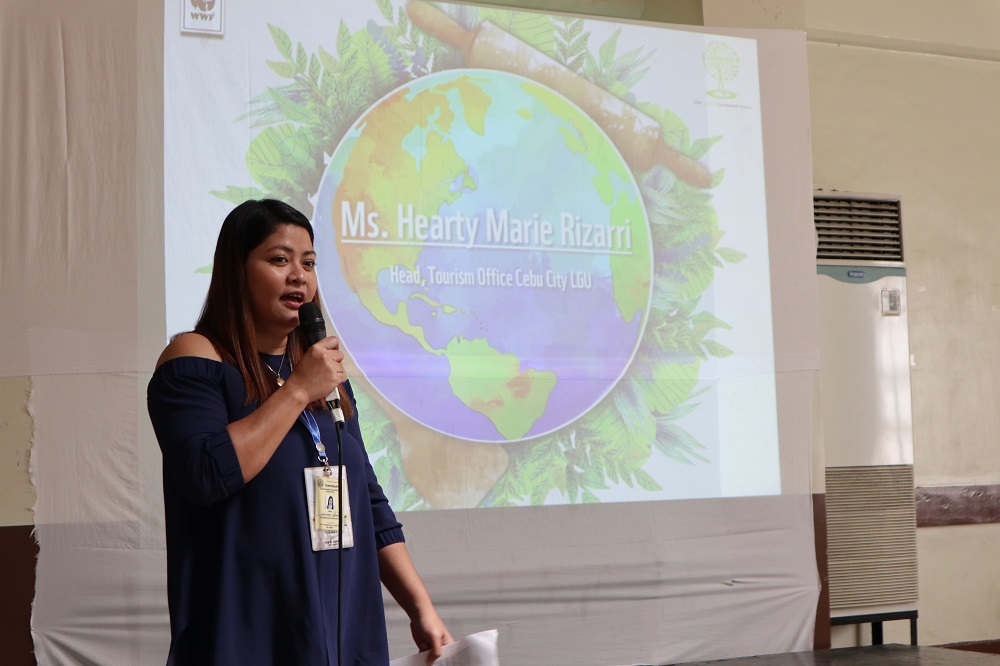
Hearty Marie Rizarri, Cebu City’s Tourism Officer, initiates a lively discussion on the sustainable tourism practices of her office as well as the initiatives that they currently have in place to support sustainability in the tourism industry. © Gabriel Villalon / WWF-Philippines
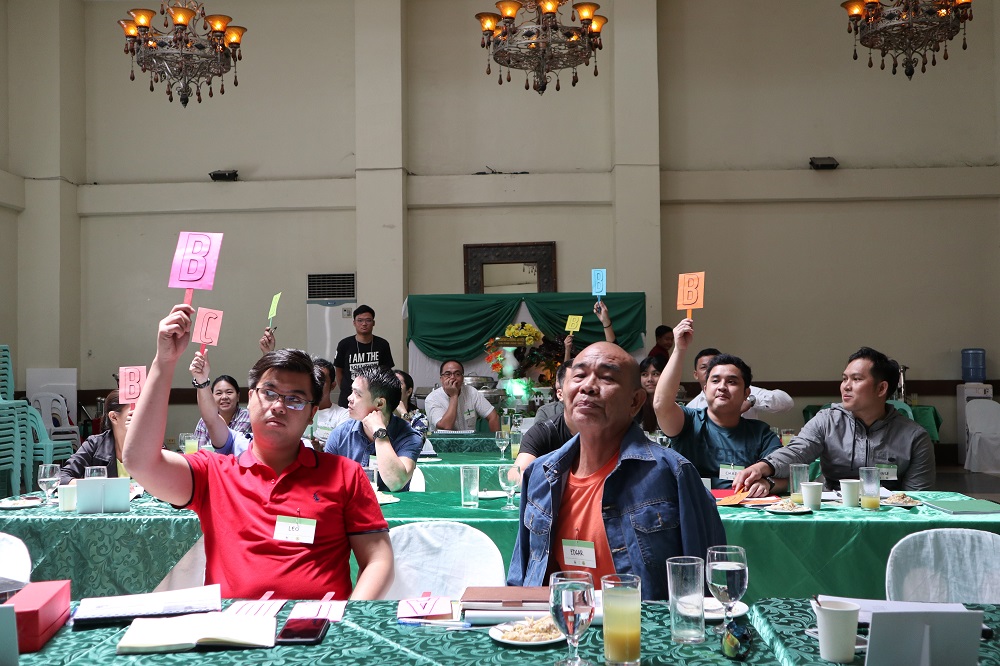
Cebuanos take their food safety and food handling really seriously! Participants were very enthusiastic in answering during the interactive group quizzes portion of each session. © Gabriel Villalon / WWF-Philippines
Similar to the Quezon City and the Tagaytay City legs, Melo-Rijk discussed the different ServSafe modules including Providing Safe Food, Forms of Contamination, The Safe Food Handler, The Flow of Food, and an Introduction to Food Safety Management. Individual quizzes and interactive group quizzes, proving to be a hit across the different cities, were still given in between sessions to ensure that the participants were able to grasp the concepts presented in each topic. The training ended with an awarding of prizes for the top three groups with the most points, as well as the presentation of the Serve Our Planet badges, which each restaurant will earn for every training where they send a representative to attend.
Through the whole-day training, the participants were equipped with new knowledge on proper food handling, which they can use for their day-to-day operations. This also serves as preparation should they wish to take their own ServSafe certification exams. Here’s to more integration of sustainable dining principles in our local dining industry!
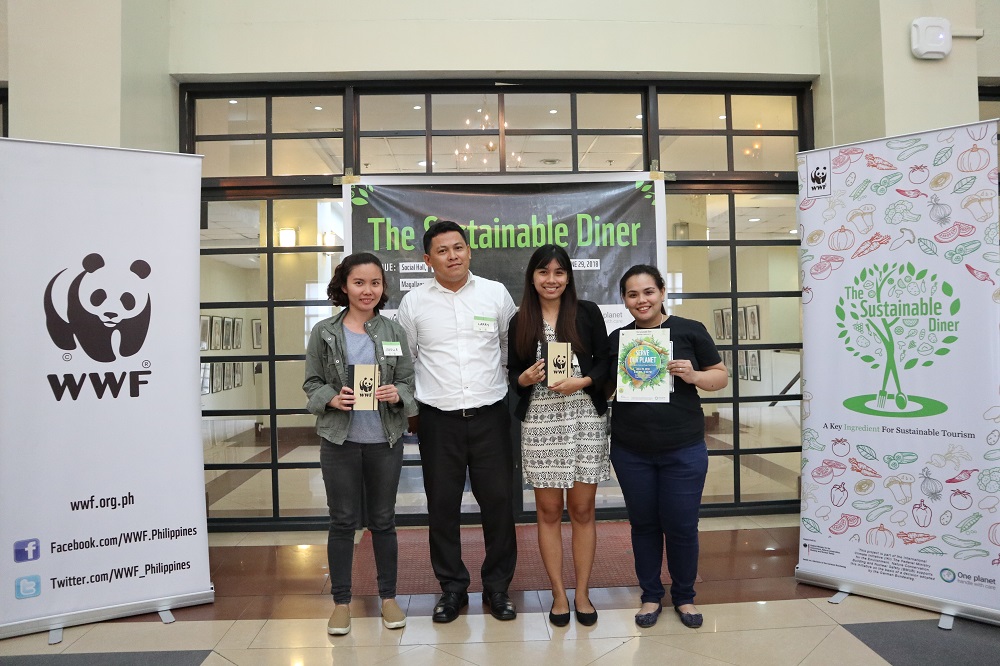
Melody Melo-Rijk with members of Team Blue, the grand prize winner for the interactive group quiz competition. © Gabriel Villalon / WWF-Philippines
The Sustainable Diner project, under WWF-Philippines’ Sustainable Consumption and Production, is part of the International Climate Initiative (IKI). The Federal Ministry for the Environment, Nature Conservation, Building and Nuclear Safety (BMUB) supports this initiative on the basis of a decision adopted by the German Bundestag.
